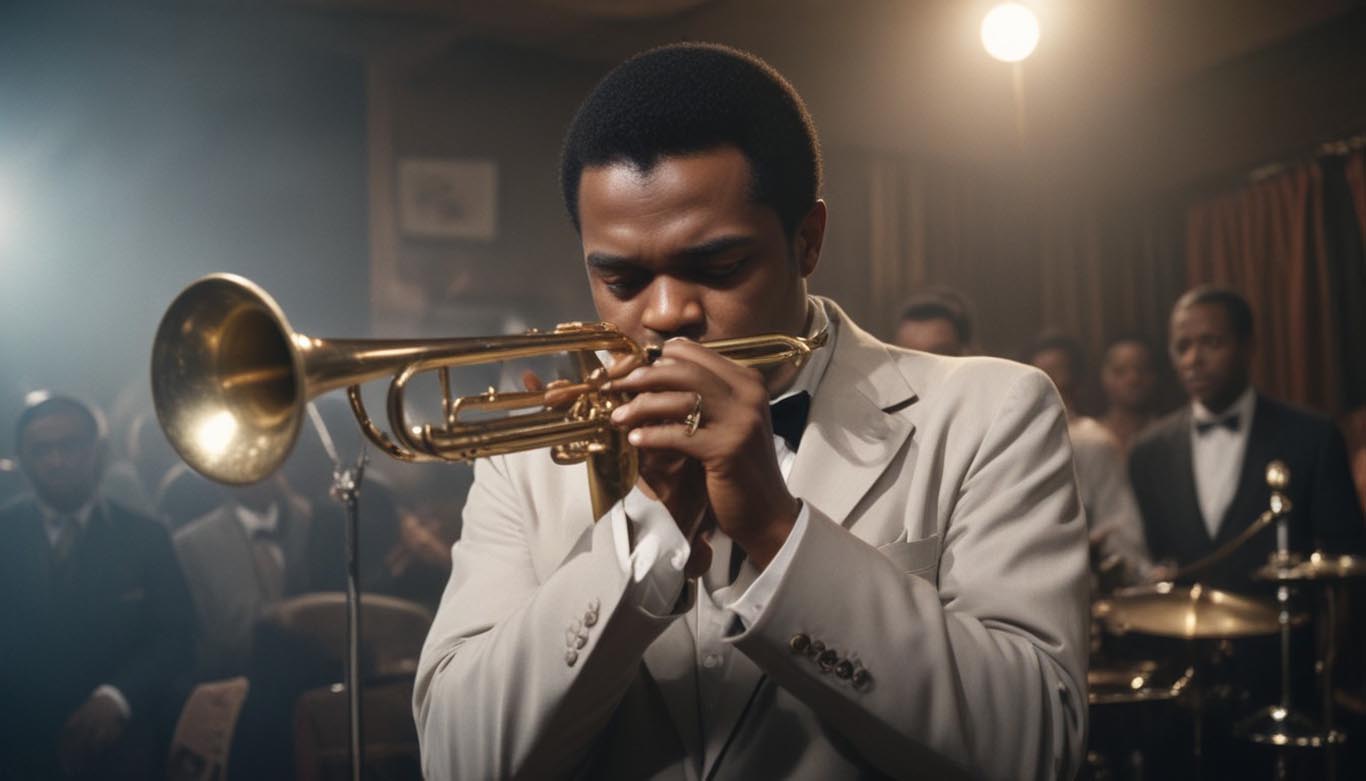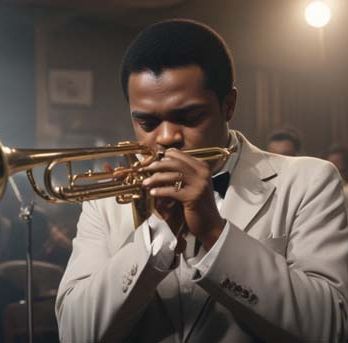Freddie Hubbard

Freddie Hubbard was a trumpet virtuoso and composer, played a pivotal role in shaping the landscape of jazz music with his technical prowess, innovative style, and boundary-pushing compositions.
Early Life and Musical Beginnings
Freddie Hubbard was born on April 7, 1938, in Indianapolis, Indiana. He showed an early aptitude for music and began playing the trumpet at the age of six. Hubbard's talent quickly became apparent, and he was recognized as a prodigy, earning scholarships to study at the prestigious Indianapolis Jazz Foundation and the Juilliard School of Music in New York City.
1950s-1960s
In the late 1950s, Freddie Hubbard emerged as a prominent figure in the jazz scene, performing and recording with artists such as Slide Hampton, Art Blakey, and Sonny Rollins. His technical virtuosity and innovative improvisational style earned him widespread acclaim and established him as one of the leading trumpeters of his generation.
In 1958, Hubbard moved to New York at age 20 and quickly established himself as one of the bright young trumpeters on the scene. Hubbard was signed to Blue Note on recommendation of Miles Davis.
He played bebop, hard bop, and post-bop styles from the early 1960s onwards. He was a significant presence on Herbie Hancock’s Blue Note recordings, beginning with Takin’ Off (1962)
Hubbard's breakthrough came in 1960 when he joined the Jazz Messengers, led by Art Blakey. His tenure with the group produced several classic albums, including "Mosaic" (1961) and "Buhaina's Delight" (1963), showcasing his dynamic trumpet playing and compositional skills.
1970s-1980s
He achieved his greatest popular success in the 1970s with a series of crossover albums on Atlantic and CTI Records. His early ‘70s jazz albums for CTI – Red Clay (1970), Straight Life (1970) and First Light (1971) – were particularly well received (First Light won a Grammy for Best Instrumental Jazz Performance). Later in the decade, he returned to the acoustic, hard-bop idiom with the V.S.O.P. quintet, which teamed him with members of the 1960s Miles Davis Quintet: Herbie Hancock, Wayne Shorter, Tony Williams and Ron Carter. Hubbard also stepped briefly into the pop arena when he played a solo on “Zanzibar,” a track from Billy Joel’s Grammy-winning 1978 album, 52nd Street.
Throughout the 1980s, Hubbard remained an influential figure in the jazz world, recording and performing with a diverse range of artists and ensembles. His collaborations with musicians like Herbie Hancock, McCoy Tyner, and Stanley Turrentine further solidified his reputation as a versatile and innovative trumpeter.
As the ‘80s got under way, Hubbard was once again leading his own group, playing at concerts and festivals in the U.S. and Europe. He frequently collaborated with Joe Henderson, playing a repertory of hard-bop and modal-jazz pieces. Other associations throughout the decade included Monterey Jazz Festival dates with Bobby Hutcherson; studio projects with Woody Shaw and Benny Golson; and a live recording in Holland (Feel the Wind) with Art Blakey in 1988.
Legacy and Influence
Freddie Hubbard's impact on the jazz genre is immeasurable. His technical mastery, adventurous spirit, and innovative compositions have inspired generations of musicians and left an indelible mark on the history of jazz music.
Hubbard's compositions, such as "Red Clay," "Little Sunflower," and "Straight Life," have become jazz standards, performed and recorded by countless artists over the years. His influence extends far beyond his own recordings, as he continues to inspire new generations of musicians with his fearless approach to improvisation and composition.
In 2006, the National Endowment for the Arts granted Hubbard its highest honor in jazz, the NEA Jazz Masters Award.
Freddie Hubbard's legacy as a pioneering trumpeter and composer endures.
to download my version click here
Freddie Hubbard ratings

Songs: Little Sunflower, Straight Life